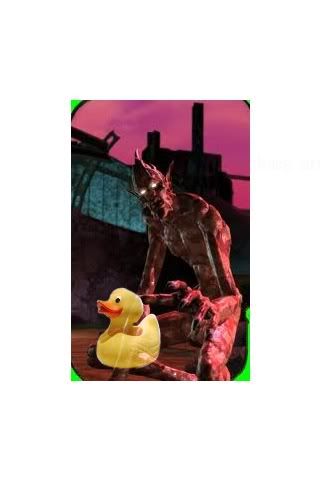What you describe here is more like the opposite of metaplot - there's a significant but ill-defined background element, and you (as GM) fill in the details, a bit here and a bit there, some of it revealed to the players/PCs, some of it purely in the background being used to shape future reveals. (From your description, I'm not sure who had control over the timing of the final reveal - you or the players.)
So it's not whether there is a big reveal, but *how* that big reveal is reached that determines whether something is metaplot or not?
Btw The Great Modron March was by no means an exception to the metaplot heavy adventures from TSR and later WotC. And, to be fair, those planescape adventures heaviest in metaplot (as I'm understanding it) - Modron March, Dead Gods, Faction War, etc. - were all penned by Monte Cook. In my opinion a great example of an open-ended planescape adventure is Harbinger House by Bill Slavicsek.
pemerton said:
Speakign more loosely, I think "metaplot" whenever the PCs end up being the pawns of some scheme that makes sense only to the GM in light of his/her big picture of the campaign - so that the real meaning of the events in the game come not from what the players contributed, but from this "secret" meaning that they have in light of what only the GM knows (at least at first, until the GM does the "big reveal" to the players).
It almost sounds like metaplot, as you're describing it, begins with mystery and narrows down to revelation.
Whereas narrativist play just keeps on getting more mysterious?
pemerton said:
This sort of GM-driven "big reveal" play is at odds with narrativism, because it puts the meaning of things in the GM's hands rather than the players' hands. Conversely, keeping setting, NPC motivations, etc flexibile, and working them out in tandem with the players actuall playing the game, and in response to the choices of the players as a vehicle for building on those choices, I think reinforces the players' contribution to meaning in the game. The Burning Wheel Adventure Builder talks about the campaign setting, built up in this way, as being a sort-of "history" of the campaign as actually played.
Hmmm. In theory that kinda makes sense. But AFAIK I didnt experience these two things as being opposed during my Planescape campaign. Actually this really doesn't have to do with Planescape specifically.
I guess this is a new branch of discussion.
Anyhow, I *think* we agree that narrativist play is possible in Planescape, and my examples illustrate that it's not swimming upstream against the setting to do so. Right?
However it's less fair to say that I have metaplots than I like to have strong, passionate NPCs with their own goals, and they'll be working on them just as much as the PCs are working on their own.
To be clear, I don't think we're using metaplot as a dirty word, but as a descriptor for a style of play. But maybe you already got that.
Yeah I'm sure you have dozens of voices inside your head waiting to break out. I mean that in a good way.

[MENTION=42582]pemerton[/MENTION] seems to be pointing toward the transparency of those NPC motives and actions, and that metaplot is associated with a lack of transparency while narrativist play is about transparency.
Feels like this is sliding away from Planescape and into RPG theory, and I'd like to dovetail back into Planescape and actual play (or the juncture of actual play and theory in Planescape) at some point.
Your yugoloth politics example reminds me if alpha layers/masks in Photoshop. It's Shemeska, oh wait if I clear up all this white space it looks like it's actually the Oinoloth in the background, oh wait...
Shemeska said:
As much as possible, I want to provide meaningful PC interaction with and/or disruption or co-option of anything other major NPCs are up to in the world at large within the general focus of the campaign.
Of course any campaign can have this, but I feel Planescape does this with a very interesting style. The PCs are expected to disrupt the plans of NPCs who are vastly more powerful - gods, demon princes, those sorts of planar powers. In other campaigns such entities may be unknowable (eg. the gods in Eberron). Part of what makes Planescape unique is the ability to interact and (hopefully) gain the upper hand over such powers.
Shemeska said:
The next campaign the PCs ran a few things off the rails of where I had in my mind things likely to be going (and in the process they legitimately toppled Bel the Lord of the 1st layer of Hell, and politically brought down Dagos of the Dark 8). I adore that sort of unexpected ramifications of PC actions and motivation while I'm working on what's going on within the larger sphere of the campaign world. Define as metaplot or not as you wish.
I don't know about your game's rails, but those are some huuuuge changes your players made! Especially without you expecting it.
If it were me I'd have had 30 seconds of brainlock.





